How To Make Vegan Mayonnaise
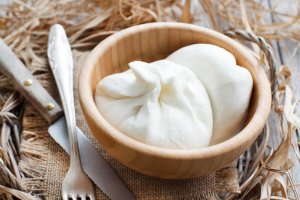
Vegan Mayonnaise is an excellent choice of dressing. Not just for its light texture, but due to it having great nutritional value. Furthermore, it won’t increase your bad cholesterol (LDL) or cause weight gain.
Normal mayonnaise plays a role in many diverse recipes such as fried chicken wings, or baked potato. However, it can also be a salty addition to give a little tang to a dish.
Aside from normal mayonnaise, it’s possible to make other dressings and a really tasty vegan mayonnaise!
The origins of mayonnaise
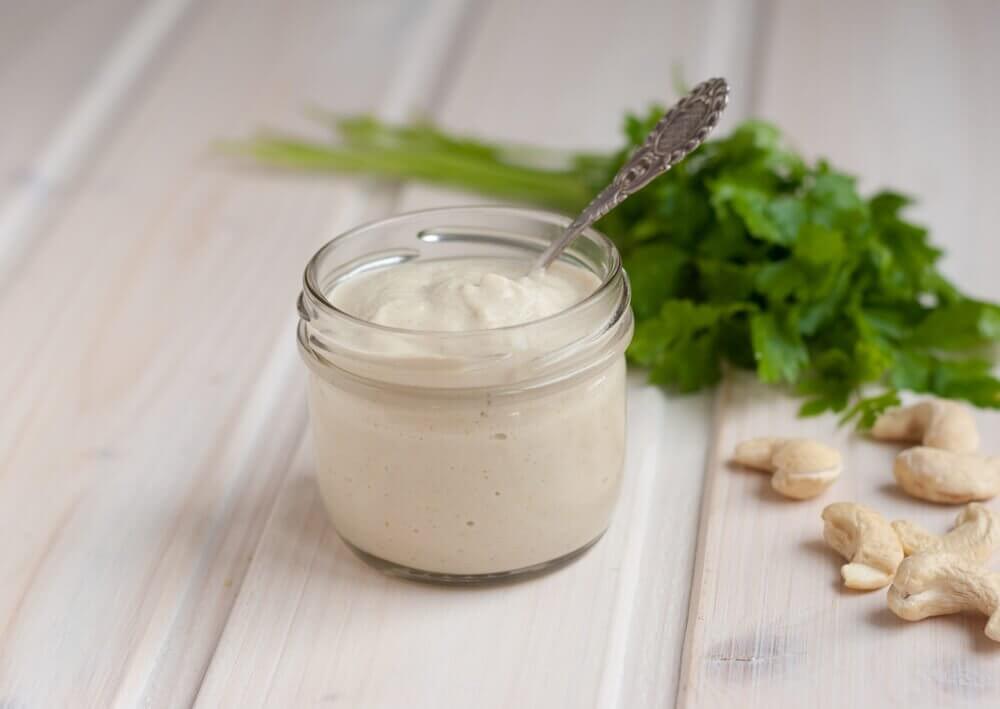
It’s said that mayonnaise originated on the island of Menorca, specifically in the city of Mahon. This is where the name supposedly comes from – mahonesa.
Anyways, it’s believed this emulsion dates approximately from the mid 19th century. Since then, it has been frequently used as a side-dish on a large and small scale on a variety of dishes.
An emulsion?
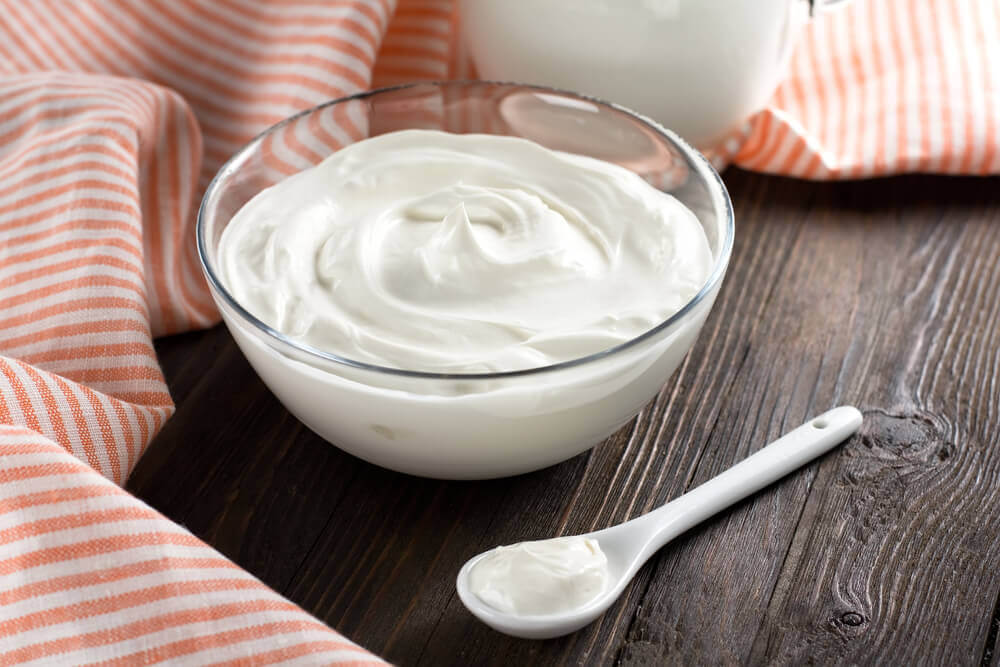
Being an emulsion, mayonnaise comes from the dispersion of oil in an watery liquid. This happens because the egg yolk contains an emulsifying factor called lecithin.
The lecithin in the yolk surrounds the small drops of oil that separate when beaten. This way the lecithin makes it possible for the oil to reunite. That said, how can you make a vegan mayonnaise if it contains egg?
Veganism and mayonnaise
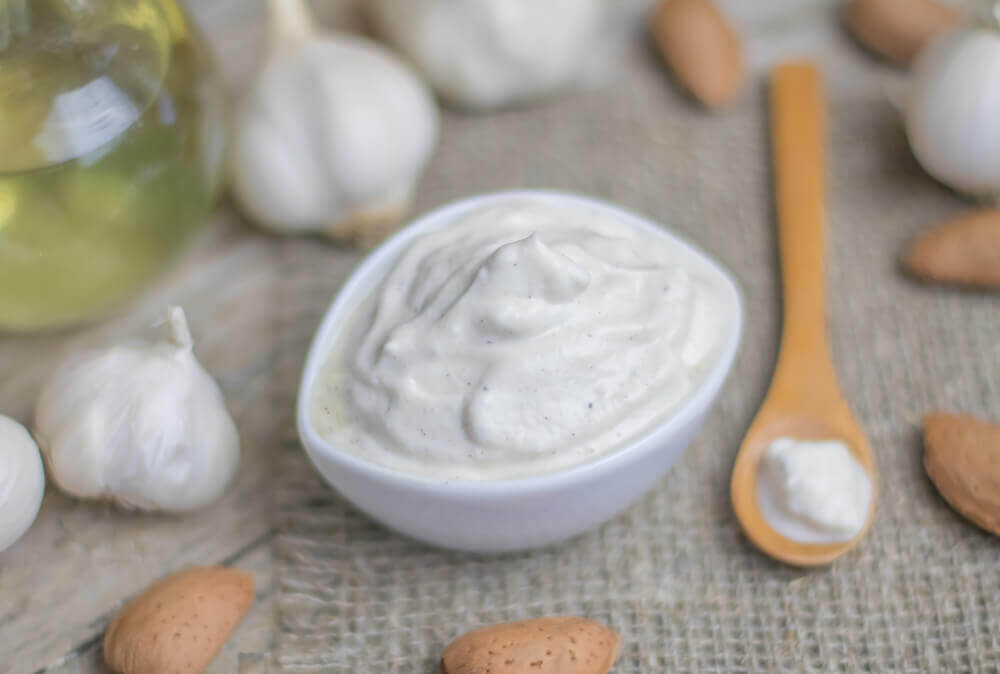
For this reason, vegans also abstain from eating other certain foods, such as mayonnaise. Instead, they take the recipe and substitute ingredients with vegetable products.
How to make vegan mayonnaise
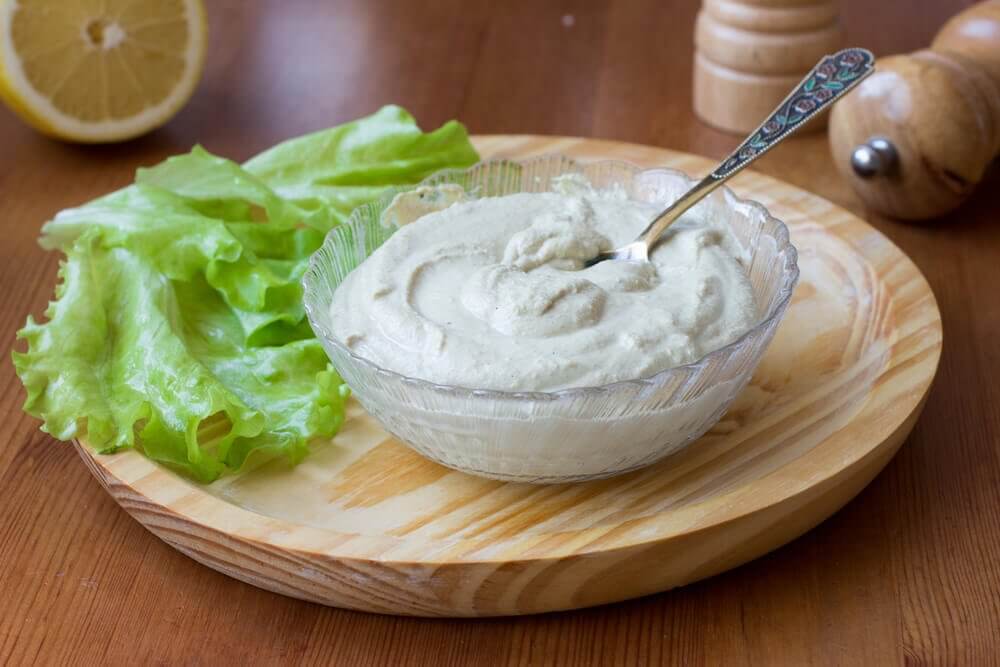
Making vegan mayonnaise is not very different from traditional mayonnaise. Likewise, as it is with classic recipes, it can taste even better.
To make vegan mayonnaise you need basic ingredients: vegetable oil along with another type of plant milk. Therefore, adding a little salt and lemon or vinegar would go well.
It’s important to make sure all ingredients are at room temperature just to play it safe. This recipe most likely won’t workout if the oil is at room temperature, and the soy milk is cold.
Ingredients
- A pinch of salt
- A few drops of lemon (at least 3 ml)
- ¼ cup of plant milk (preferably soya milk)
- ½ cup of vegetable, olive, or sunflower oil (180 – 190 g approx.)
Preparation
- Pour the plant milk and lemon drops in a blender.
- Blend all the ingredients.
- Lower the blending intensity and gradually add the oil.
- Eventually, the mixture will get the desired consistency and once this happens, add a pinch of salt.
- It’s best to be served in glass. Consume within 3 days.
This is the basic vegan mayonnaise recipe. You can add other ingredients to vary it a little, depending on the other side-dishes. For example, you could get a tastier mayonnaise by adding a little garlic or a little coriander or parsley.
At the same time, you could use pre-flavored oil through an infusion process. This way you could create new flavors to add to your final dish. As you can see, mayonnaise is a really useful dressing, and the vegan version is no exception.
All cited sources were thoroughly reviewed by our team to ensure their quality, reliability, currency, and validity. The bibliography of this article was considered reliable and of academic or scientific accuracy.
Glick-Bauer, M., & Yeh, M. C. (2014). The health advantage of a vegan diet: Exploring the gut microbiota connection. Nutrients. https://doi.org/10.3390/nu6114822
Fuhrman, J., & Ferreri, D. M. (2010). Fueling the vegetarian (vegan) athlete. Current Sports Medicine Reports. https://doi.org/10.1249/JSR.0b013e3181e93a6f
Rogerson, D. (2017). Vegan diets: Practical advice for athletes and exercisers. Journal of the International Society of Sports Nutrition. https://doi.org/10.1186/s12970-017-0192-9
This text is provided for informational purposes only and does not replace consultation with a professional. If in doubt, consult your specialist.








